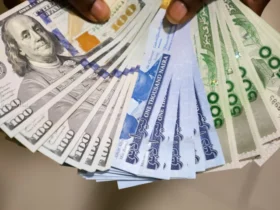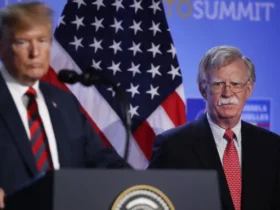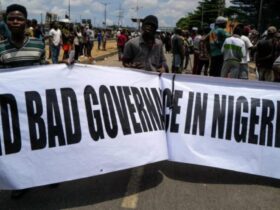
The Economic and Financial Crimes Commission (EFCC) has raised a 7,000-man special task force across its 14 zonal commands to clamp down on dollar racketeers in an effort to reduce pressure on the naira.
The Special Task Force in all its Zonal Commands was assigned with the task of enforcing extant laws against currency mutilation and dollarization of the economy.
The Governor of the Central Bank of Nigeria, Olayemi Cardoso, who appeared before the House of Representatives on Tuesday, stated that there was more demand pressure on the foreign exchange market, causing a continuous decline in the value of the naira.
“The value of the naira has decreased significantly in relation to the dollar during the last several weeks, losing ground to the US currency. At the official market, the value of the naira had dropped from around 900 to over 1,400 dollars.
“Factors contributing to this predicament are speculative forex demand, inadequate forex due to low remittance of crude oil earnings to the CBN, increasing capital outflows, and surplus liquidity from fiscal activities,” he said.
READ ALSO: Share Ideas with Tinubu to Run Economy, Good Governance, APC Urges Obi, Atiku
He noted that a strategy had been initiated to enhance liquidity in the forex market in order to address exchange rate volatility. This entails bringing new operating procedures for Bureau De Change operators, clearing outstanding FX liabilities, bringing all FX market segments together, enforcing the Net Open Position limit for commercial banks, and adjusting the remunerable Standing Deposit Facility cap.

Cardoso disclosed that the CBN’s publicly accessible Balance of Payments Statistics showed that, between 200 and 2020, the costs associated with studying abroad totalled a substantial $28.65bn.
In a similar vein, the expenditures of receiving medical care overseas amounted around $11.01bn. Within the same period, Personal Travel Allowances accounted for a total of $58.7bn.
Also, The CBN governor stated that the entire amount Nigerians spent on international travel, medical tourism, and abroad education exceeded the central bank’s total foreign exchange reserves, at around $98bn.
Various people and organisations responded to the development by recognising the legitimacy of the EFCC’s efforts to counter dollarization. They pointed out that the practice of demanding payment in foreign currency is prohibited, and it might devalue the naira even more. #EFCC








Leave a Reply